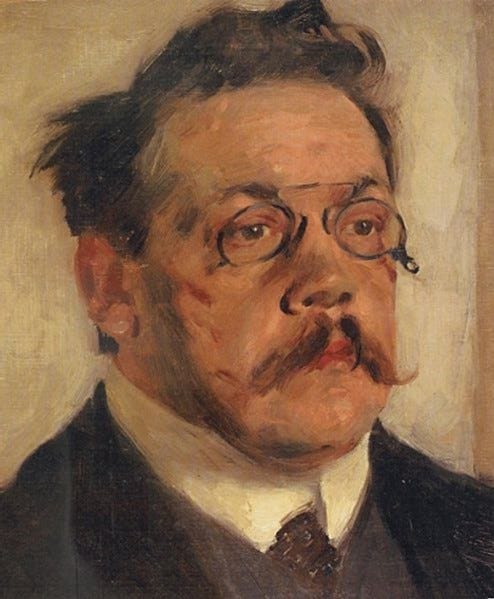War: A School Essay
"If anyone thinks that it would have been smarter never to have started the war in the first place, he is called a Social Democrat and sent to jail."
War (bellum) is that situation in which two or more peoples try to go against each other. One has known of it since the olden days, and because we read of it so often in the Bible, we call it holy.
In ancient Rome, the temple was closed when war started, because the god Janus probably didn’t want to know about it. But that is a silly superstition which has been done away with since Christianity, in which the churches don’t close for it.
There are Religious Wars, Conquering Wars, Wars of Existence, National Wars, etc. When one side loses and then the war starts all over again, it’s called a War of Vengeance.
Earlier there were more Religious Wars, because then the people wanted to make sure that everyone liked God. Therefore they killed each other. Nowadays there are more wars about trade, because the world isn’t quite so idealistic.
In ancient days when there was a war, the gods also fought. Some helped one side, the others helped the other side. One can see that in Homer. The gods would set themselves on the hills and watch. If they got mad, they would hit each other on the head.
That is, the Ancients believed that. One has to laugh, because that is so childlike to think that there are so many different gods, and that they fight among themselves. Now people believe in only one God, and when war begins, they all pray to Him, so He will help them. On both sides, the priests say that He’s on their side, which isn’t possible, because there are two sides.
One notices this first after the war is over. But that’s all right, because whoever loses says that God is testing them.
When war begins, there is music. People sing on the street and cry. This is called the National Anthem.
On both sides, the king looks out the window during the anthem, which makes the enthusiasm greater. Then it starts. The real part of the war begins, which is called a battle. It begins with prayer, then they start shooting, and people are killed. When it’s over, the king goes out to see how many are dead. Everybody says that it’s sad that it must be that way.
But those who are still alive and well comfort themselves, because it’s the most beautiful way to die.
After the battle, they sing more pious songs, and usually someone paints a picture of it. The dead are put in mass graves, where they stay until the Professors have them dug up. Then their uniforms are put in a museum; usually there are only the buttons left. The area where the men are killed is called The Field of Honor.
When there’s been enough, the victors go home. Everyone is happy that the war is over, and everybody goes to church to thank God for that. If anyone thinks that it would have been smarter never to have started the war in the first place, he is called a Social Democrat and sent to jail.
Then there is peace, in which people waste away, as Schiller says. Especially the invalids, since they don’t get any money and can’t earn anything. Some of them get a monkey and become an organ-grinder, and play patriotic songs that encourage the youth to fight real hard if war ever comes again.
Everyone that was in the war gets little round medals that clink when they walk. Many also get rheumatism and become janitors at schools, like at ours.
So war also has its benefits and helps us all.
Ludwig Thoma first published this piece in Simplicissimus, Volume 7 (1902/1903). Although World War I was still twelve years in the future, Thoma regularly wrote and spoke against the militaristic impulses of his day. His wordsmithy earned him a jail sentence. (In his later years, Thoma inexplicably became an ardent nationalist.)
Original text is public domain. Translation © Exclamation! Publishers. Please contact us for permission to quote translation.





